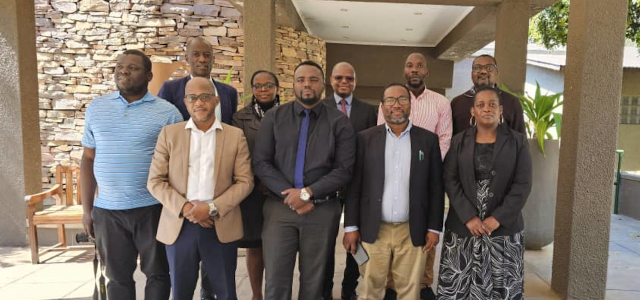The specific objective of the workshop, which took place in Lilongwe from 15 -17 July 2025, was to build technical expertise for climate-resilience by training the DAEs staff in:
- Financial and fiduciary management, environmental and social safeguards, and alignment with GCF and national climate priorities
- GCF funds management
- Institutional readiness and strategic alignment
The training, held under the AU-AIP Multi-Country Green Climate Fund Readiness Project, was based on recommendations from the Capacity Development Plan that was developed following findings from a capacity gap assessment framework that was shared and populated by the nominated DAEs, namely, the Environmental Affairs Department (EAD), Malawi Environmental Endowment Trust (MEET), Leadership for Environment and Development (LEAD), Eco Bank and NBS Bank.
The training was also organised following recommendations from the technical experts, made during an introductory online meeting towards accreditation, which was attended by the five nominated DAEs, GWPSA, AIP Technical Consultants and the NTC.
“By addressing these capacity gaps, Malawi can access climate finance, enhance water security, and contribute to continental efforts under the Continental Africa Water Investment Programme (AIP) to accelerate the development of water and climate resilience,” explained Mrs Deborah Muheka, National Technical Coordinator of the AU-AIP Multi-Country Green Climate Fund Readiness Project in Malawi.
Malawi currently faces significant challenges, including limited capacity for accessing climate finance, because of insufficient technical expertise, slow progress in accreditation of GCF Direct Access Entities and insufficient strategic frameworks for investment in climate-resilient projects in the water sector specifically. Malawi has no GCF-accredited entity but has nominated institutions to pursue accreditation. Some institutions started the accreditation process but were not successful and are in the process of reaccreditation.
The training workshop is financed by the Green Climate Fund (GCF) as part of the AU-AIP Multi-Country GCF Readiness project, which the African Union Commission is implementing with technical support from the Global Water Partnership Southern Africa.
